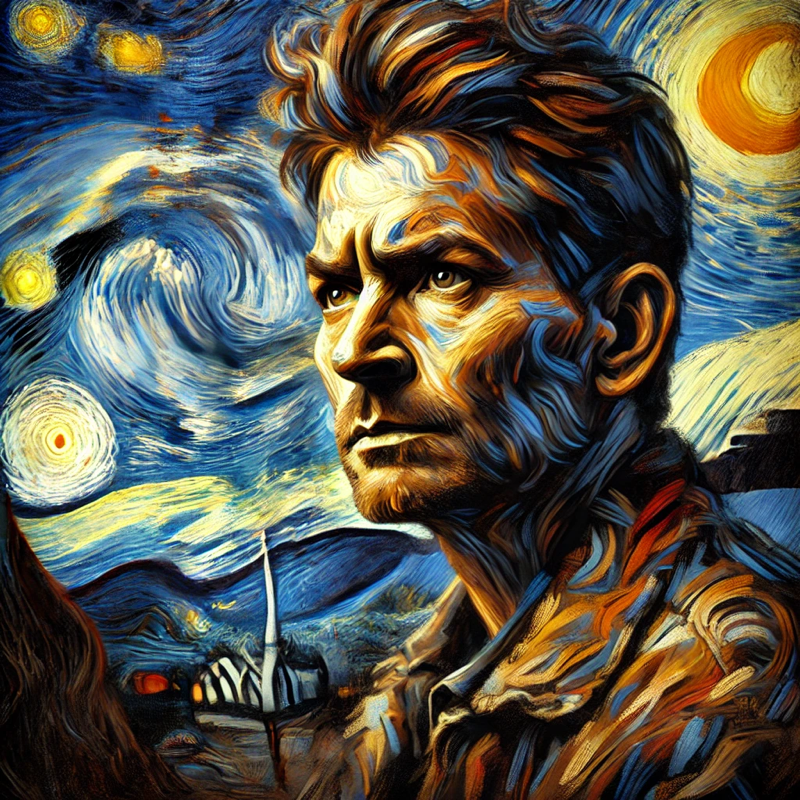Charlie Sheen: A Reflection on Public Backlash and Resilience
Charlie Sheen’s HIV disclosure in 2015 sparked intense stigma and public backlash, exposing society’s deep-seated biases. Despite media scrutiny and legal battles, he challenged misconceptions and highlighted the need for compassion. His story urges us to replace judgment with understanding.

Introduction
Charlie Sheen, the Hollywood actor known for his roles in Two and a Half Men, Platoon, and Wall Street, has long been a figure of both admiration and controversy. However, among the many chapters of his life, one of the most defining—and most stigmatized—has been his public disclosure of being HIV-positive in 2015. While medical advancements have made HIV a manageable condition, public perception remains deeply entrenched in fear, misinformation, and moral judgment. Sheen’s disclosure did not just expose his personal struggles but also ignited widespread stigma, forcing a conversation about how society treats those living with HIV. His story serves as a case study of how public figures navigate health crises under scrutiny and what it reveals about broader societal attitudes.
The Stigma and Public Backlash
Sheen’s HIV diagnosis was not met with compassion and understanding; instead, it triggered a wave of judgment, sensationalism, and blame. The media frenzy that followed his announcement reflected a persistent association between HIV and reckless behavior, fueling damaging stereotypes. Headlines fixated on his past substance use, tumultuous relationships, and high-profile controversies, painting his diagnosis as a form of self-inflicted consequence rather than a medical condition deserving of empathy.
Beyond the media, public sentiment mirrored this harsh judgment. Many took to social media to ridicule and shame Sheen, often using his past indiscretions as justification for their disdain. His disclosure also led to legal ramifications, with former partners accusing him of not disclosing his status, even as he maintained that he adhered to proper medical and legal protocols. The financial implications were equally severe—Sheen lost lucrative endorsements and struggled with mounting legal battles.
This backlash exemplifies a broader issue: the societal tendency to attach moral weight to illness, particularly when it comes to HIV. Unlike other health conditions, HIV is often seen as a disease of personal failure rather than a medical reality, leading to discrimination that extends far beyond the individual.
How He Handled It
Despite the overwhelming stigma, Sheen did not retreat into obscurity. Instead, he made an effort—though imperfect—to reshape the narrative surrounding his diagnosis. His public disclosure on The Today Show was a crucial moment, not only for him but for HIV awareness at large. By speaking openly, he forced the world to confront its prejudices and misunderstandings about the virus.
Following his announcement, Sheen became involved in HIV advocacy, discussing his experiences with treatment and the realities of living with the virus. He started on antiretroviral therapy, and his health remained stable, demonstrating that an HIV diagnosis is no longer the death sentence it once was. Though his advocacy work was inconsistent, his disclosure itself was significant—very few high-profile figures have openly shared their HIV status, making his admission a powerful moment in challenging stigma.
At the same time, Sheen’s handling of the situation was met with criticism. Some felt he did not take enough responsibility for his actions, while others pointed to his fluctuating public persona—at times appearing remorseful, at other times defiant. His approach was neither a perfect model of resilience nor a complete failure; rather, it was a reflection of a deeply human response to public shaming and health struggles.
Lessons We Can Learn
Sheen’s experience highlights key lessons about stigma, responsibility, and the need for social change:
- HIV Stigma is Persistent but Unjustified – Despite medical progress, public perception remains outdated. Sheen’s case illustrates how easily society falls back on blame and moral judgment rather than compassion and education.
- Disclosure is Difficult but Necessary – Public figures who disclose their HIV status help to normalize conversations around the virus. Sheen’s disclosure, despite the backlash, contributed to breaking some of the silence surrounding high-profile individuals living with HIV.
- Personal Responsibility vs. Public Judgment – While personal actions have consequences, no one deserves to be vilified for a medical condition. Sheen’s experience underscores the fine line between accountability and undue stigma.
- Media’s Role in Shaping Narratives – The way Sheen’s diagnosis was reported highlights how media can either perpetuate or challenge stigma. Ethical reporting is crucial in shaping a more informed and compassionate public response.
- The Importance of Support Systems – Navigating a chronic illness in the public eye requires resilience and a strong support network. Sheen’s challenges emphasize the need for broader societal support for those living with HIV.
Conclusion
Charlie Sheen’s HIV disclosure was more than a personal revelation—it was a public moment that exposed how deeply entrenched stigma remains. While his response was imperfect, his willingness to come forward challenged society’s biases and forced an important conversation about HIV. His story serves as both a cautionary tale and an opportunity: a reminder of how harshly we judge, but also how those affected can reclaim their narrative. Moving forward, society must work towards dismantling stigma, embracing medical progress, and fostering a culture of empathy rather than condemnation. Only then can we truly ensure that HIV is seen for what it is—a manageable condition, not a moral failing.
